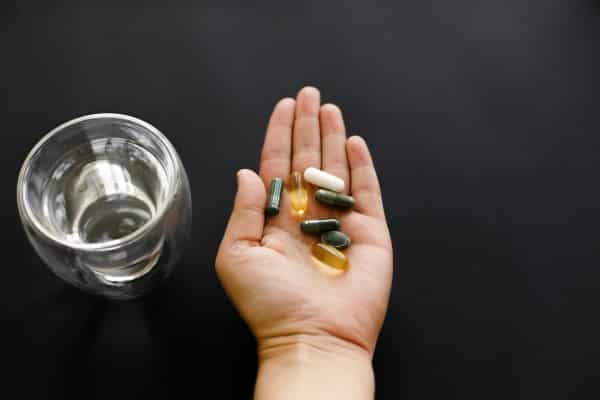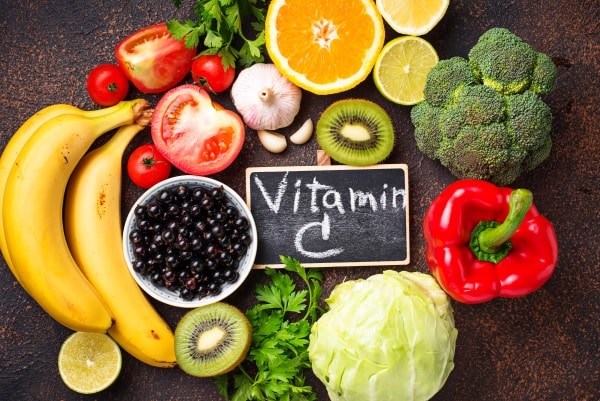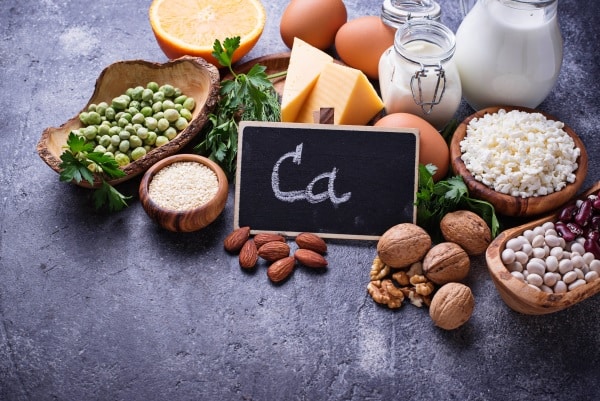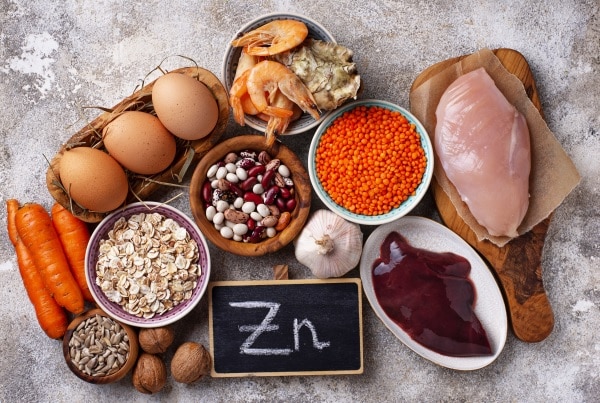Did you know that nearly 1 in 2 people are deficient in at least one essential vitamin? Vitamins play a crucial role in maintaining a healthy body, from boosting your immune system to aiding in cellular repair. Yet, despite their importance, many individuals fall short of the recommended daily intake. This article is here to shed light on the most common vitamin deficiencies that you might be overlooking. You’ll learn about the roles these vitamins play, the risks of deficiency, and how to ensure you get enough through diet or supplementation. Let’s dive in to arm you with the knowledge you need to take control of your health.
Contents
The Role Of Vitamins In Your Body

Vitamins are organic compounds that our bodies need in small amounts to function properly. They serve as essential co-factors for enzymes, help in the process of energy production, and are vital for a myriad of biological functions. From aiding in the absorption of minerals to acting as antioxidants, vitamins are indispensable for maintaining good health. However, your body cannot produce most vitamins, which means you have to obtain them from your diet or supplements.
Understanding the role of vitamins sets the stage for grasping the gravity of deficiencies. There are two main types of vitamins: water-soluble and fat-soluble. Water-soluble vitamins, such as Vitamin C and the B-complex vitamins, are easily absorbed and excreted by the body, requiring regular replenishment. Fat-soluble vitamins, like Vitamins A, D, E, and K, are stored in the liver and fatty tissues and are used as needed. A deficiency in any of these vitamins can lead to a range of health issues, from fatigue and weakened immunity to more severe conditions like osteoporosis and anemia. With that said, let’s take a closer look at the most common vitamin deficiencies and their potential consequences.
Vitamin D – The Sunshine Vitamin

Vitamin D is unique among vitamins; you can synthesize it in your skin when exposed to sunlight. It plays a critical role in calcium absorption, bone health, and immune system function. Despite its importance, Vitamin D deficiency is rampant, especially in regions with limited sun exposure. A lack of this vitamin can lead to rickets in children and osteoporosis in adults, among other health issues.
So, how can you ensure you’re getting enough Vitamin D? Sunlight is the most natural source, but it’s not always accessible or sufficient, especially during winter months. Foods like fatty fish, fortified dairy products, and eggs can provide some Vitamin D, but it’s often challenging to meet the daily requirements through diet alone. Supplements are a viable option, but it’s crucial to consult a healthcare provider for the correct dosage and to rule out any contraindications.
Vitamin B12 – The Energy Booster

Vitamin B12 is a powerhouse when it comes to energy production and the proper functioning of your nervous system. It’s primarily found in animal products, making vegetarians and vegans particularly susceptible to deficiency. Symptoms of B12 deficiency can range from fatigue and weakness to more severe conditions like anemia and neurological issues.
To boost your B12 levels, consider incorporating more animal products like meat, fish, and dairy into your diet. For those who follow a plant-based diet, fortified foods and supplements are available. However, it’s essential to note that B12 is best absorbed when it’s taken along with other B vitamins, such as B6 and Folic Acid. As always, consult a healthcare provider for personalized advice, especially if you’re experiencing symptoms of deficiency.
Vitamin C – The Immunity Builder

Vitamin C is renowned for its role in bolstering the immune system. It’s a powerful antioxidant that fights off free radicals, aids in the absorption of iron and promotes healthy skin by aiding in collagen production. Despite its widespread availability in fruits and vegetables, Vitamin C deficiency isn’t uncommon. Symptoms can include fatigue, muscle weakness, and, in severe cases, scurvy—a disease characterized by swollen, bleeding gums and joint pain.
To maintain adequate levels of Vitamin C, aim to include a variety of fruits and vegetables in your diet. Citrus fruits, strawberries, and bell peppers are excellent sources. If you find it challenging to meet your Vitamin C needs through food alone, supplements are an option. However, sticking to the recommended dosage is essential, as excessive Vitamin C can lead to digestive issues like diarrhea and nausea.
Iron – The Oxygen Carrier

Iron is a vital mineral that plays a significant role in carrying oxygen throughout your body via red blood cells. It’s also crucial for energy production and DNA synthesis. Iron deficiency is one of the most common nutritional deficiencies worldwide and can lead to anemia, a condition characterized by fatigue, weakness, and pale skin. Women of childbearing age and vegetarians are particularly at risk.
To address iron deficiency, consider incorporating more iron-rich foods into your diet. Meat, poultry, and fish are excellent sources of heme iron, which is easily absorbed by the body. Plant-based sources like lentils, beans, and fortified cereals provide non-heme iron, which is less readily absorbed but still beneficial. If you suspect an iron deficiency, consult a healthcare provider for a proper diagnosis and treatment plan, which may include supplements.
Folate – The Cell Manufacturer

Folate, also known as Vitamin B9, is indispensable for cell division and the synthesis of DNA and RNA. It’s especially crucial during pregnancy, as a deficiency can lead to neural tube defects in the developing fetus. Symptoms of folate deficiency can include fatigue, poor concentration, and irritability, making it a concern for everyone, not just expectant mothers.
To ensure you’re getting enough folate, focus on a diet rich in leafy green vegetables, legumes, and fortified grains. Folic acid, the synthetic form of folate, is also available in supplement form and is often recommended for pregnant women. However, excessive intake can mask a Vitamin B12 deficiency, so it’s crucial to consult a healthcare provider for personalized advice.
Calcium – The Bone Builder

Calcium is the most abundant mineral in your body and is essential for building and maintaining strong bones and teeth. It also plays a role in muscle function, nerve signaling, and blood clotting. Despite its importance, calcium deficiency is common and can lead to weakened bones, dental issues, and, in severe cases, osteoporosis.
Dairy products are the most well-known sources of calcium, but it’s also found in leafy greens, nuts, and fortified plant-based milk. If you’re lactose intolerant or prefer a plant-based diet, these alternatives can help you meet your calcium needs. Supplements are another option but should be used cautiously. Excessive calcium can lead to kidney stones and may interfere with the absorption of other minerals. As always, consult a healthcare provider for a tailored approach to your calcium needs.
Zinc – The Growth Promoter

Zinc is a trace element that is vital in numerous biological functions, including growth, immune response, and wound healing. It’s essential for the activity of over 300 enzymes that aid in metabolism, digestion, and nerve function. Despite its importance, zinc deficiency is not uncommon and can lead to growth retardation, loss of appetite, and a weakened immune system.
To ensure adequate zinc intake, consider incorporating foods like meat, dairy, and nuts into your diet. Plant-based sources like legumes and whole grains also contain zinc but in a less bioavailable form. If you’re concerned about a potential deficiency, zinc supplements are available. However, excessive zinc can interfere with the absorption of other essential minerals like copper, so it’s crucial to consult a healthcare provider for personalized advice.
Ensure You Are Getting The Vitamins You Need!
The path to peak health often lies in the details we overlook, such as the vitamins and minerals discussed today. This isn’t merely a cautionary tale of deficiencies; it’s an invitation to unlock a more resilient, energetic you. The power to elevate your well-being is within reach, often requiring just a few simple adjustments. Don’t settle for just getting by when you could be thriving. Consult a healthcare provider and make the dietary shifts or supplements necessary to fill your nutritional gaps. Seize this opportunity to enrich your health.


